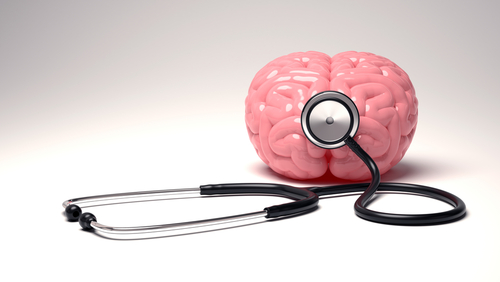Concussion Linked With 57% Higher Risk of Parkinson’s in Study
Written by |

People who had a concussion are more likely to be diagnosed later in life with Parkinson’s disease and other neurologic disorders than those who never had this type of brain injury, a database study reports.
The study, “Associations between concussion and risk of diagnosis of psychological and neurological disorders: a retrospective population-based cohort study,” was published in Family Medicine and Community Health.
A concussion is most often caused by a blow to the head. While most people recover in about a week, the long-term impacts of concussions on health aren’t fully understood.
Some studies have linked concussions with later neurological problems, including Parkinson’s disease. However, these studies often relied on self-reported data, which aren’t always accurate, and failed to account for important factors like co-existing health conditions that could complicate the findings.
Researchers analyzed insurance data from the Manitoba Population Research Data Repository, which contains information on nearly every resident of the Canadian province Manitoba.
They identified 47,483 people diagnosed with a concussion between 1990 and 2015: 28,021 males with an average age of 25, and 19,462 females with an average age of 30. For each person with a concussion, the researchers also identified three people without a concussion matched in terms of sex, age, and geographical location.
Using these two groups, they calculated the relative risk of being later diagnosed with any of four disorders: Parkinson’s disease, attention deficit/hyperactivity disorder (ADHD), mood and anxiety disorders (MADs), and dementia.
The statistical models used to calculate these relative risks made adjustments for socioeconomic status (as assessed by the Socioeconomic Factor Index, version 2), and for other health conditions (as measured by the Charlson Comorbidity Index).
Concussion was associated with a significantly increased risk of all four disorders: by 57% for Parkinson’s, by 39% for ADHD, by 72% for MADs, and by 72% for dementia.
Females had a significantly higher risk of ADHD (by 28%) and MADs (by 7%) following a concussion than did males, whereas no sex-based differences were found in concussion risk for Parkinson’s or dementia.
Having more than one concussion didn’t affect ADHD risk. However, having two concussions significantly increased the risk of dementia (by 62% compared to just one concussion), and having more than three significantly increased the risk of Parkinson’s (by over 200%) and mood and anxiety disorders (by 22%) compared to one concussion.
Additional analyses suggested that MADs were associated with concussion regardless of age, while concussion-associated ADHD risk was higher for younger individuals, and the risk of Parkinson’s or dementia was higher for older people.
These findings “are difficult to compare with previous research given the paucity of information in this area,” the researchers noted, calling for further studies to validate them.
Of note, statistical adjustments to control for any of the three other disorders lowered the concussion-associated risk of diagnosis with any one of these four. This suggests that the four disorders can overlap, which is supported by other research — for instance, it’s well established that people with ADHD are more likely to have generalized anxiety disorder (a MAD).
“While these findings support the idea of comorbidity between conditions, concussion continued to be associated with an increased risk of diagnosis for all four conditions of interest, suggesting that concussion may therefore be a risk factor for ADHD, MADs, dementia and PD [Parkinson’s disease], regardless of the presence of comorbid conditions,” the researchers wrote.
A notable study limitation is that it primarily used insurance data, which isn’t always reflective of clinical information and typically lacks details that may be relevant, such as family histories.
“The findings from this study demonstrate an association between the occurrence of concussion and an increased risk of diagnosis of ADHD, MADs, dementia and PD later in life,” the researchers wrote.
“As our results are specific to the administrative health data used for the present study, future studies exploring the relationships between concussion and ADHD, MADs, dementia and PD in other populations are warranted,” they added.


